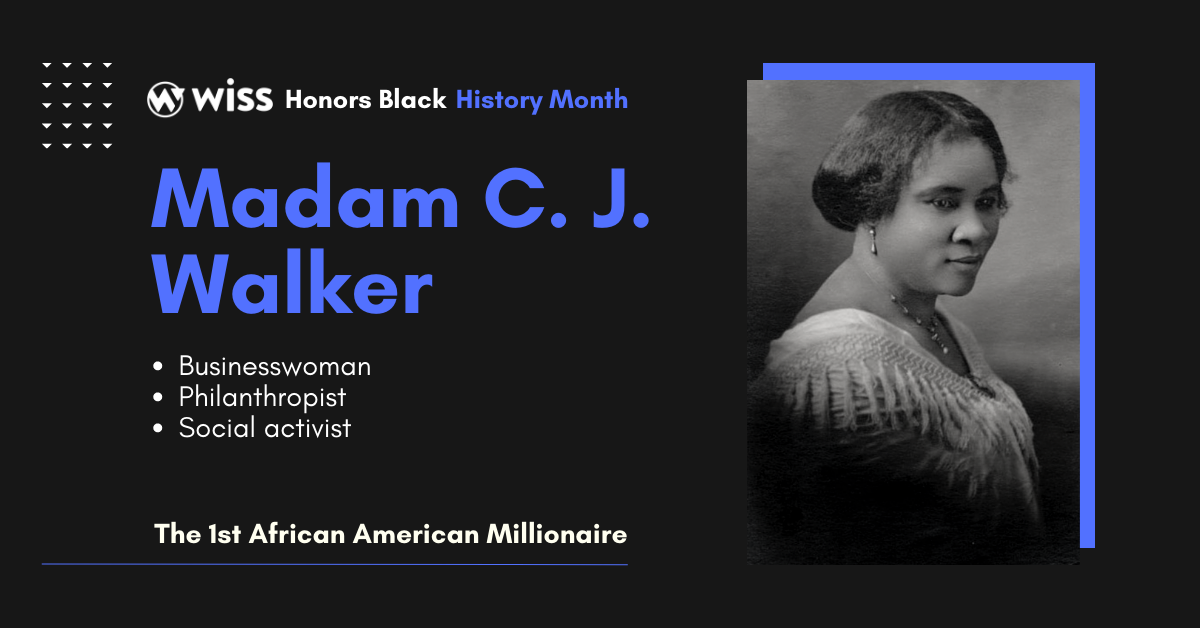By Michelle Antico, Marketing Coordinator
Throughout Black History Month, we’ve shared stories of notable figures who have made a significant mark in the accounting and business fields. We continue to share these stories to shed light on African Americans’ struggles and remind us to speak up and act on them. This week, we highlight Madam C.J. Walker, one of the first African American females to become a millionaire.
Similar to William Washington Browne, Walker was born into slavery on a cotton plantation where her parents, Owen and Minerva Anderson Breedlove, had been enslaved before the American Civil War. At age seven, Walker was an orphan after the death of her parents. Seven years later, she married Moses McWilliams at the age of fourteen to escape the brutal abuse of a brother-in-law. Then, several years later, her husband died, and Walker became a widow at only twenty years old. She took this time to start a new life for herself and moved to St. Louis, Missouri, with her daughter, where she had older brothers who were barbers.
Quickly after moving to St. Louis, Walker began her job as a washerwoman and joined St. Paul African Methodist Episcopal Church, where she sang in the choir. During this time, she also tried various commercial hairdressings but had the bold idea of experimenting with her own formula to cure scalp infections that caused baldness. In 1905, Walker moved to Denver, where she worked as a cook for a pharmacist. In this role, she learned the basic chemistry that allowed her to perfect an ointment that healed dandruff and other hygiene-related ailments that were common during a time when most Americans lacked indoor plumbing. In 1906, she married Charles Joseph Walker and began achieving local success with what later became known as the “Walker Method” or the “Walker System of Beauty Culture.”
Walker and her husband settled in Pittsburgh, where she opened the Lelia College of Beauty Culture, a school named after her daughter. However, the success of Black businesses in Indianapolis encouraged her to take a leap of faith and relocate the headquarters of the Madam C.J. Walker Manufacturing Company there in 1910. She traveled across the United States and provided career opportunities and economic independence for thousands of African American women who would have been destined to jobs as maids, cooks, laundresses, and farmhands if Walker had not intersected.
In addition to Walker’s tremendous financial success, she also made her mark as a philanthropist. She gifted $1,000 to the African American Young Men’s Christian Association (YMCA) building fund in Indianapolis in 1911 and a $5,000 contribution to the National Association for the Advancement of Colored People’s (NAACP’s) anti-lynching fund in 1919. She also provided scholarships for students at many Black colleges and boarding schools and financial support for orphanages and retirement homes.
Walker was, and always will be, a true inspiration to everyone who knows her story. Becoming the first African American female millionaire after overcoming an abundance of struggles and obstacles portrays the true meaning of achieving the American dream.
